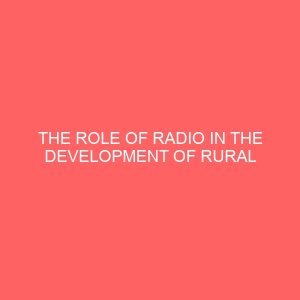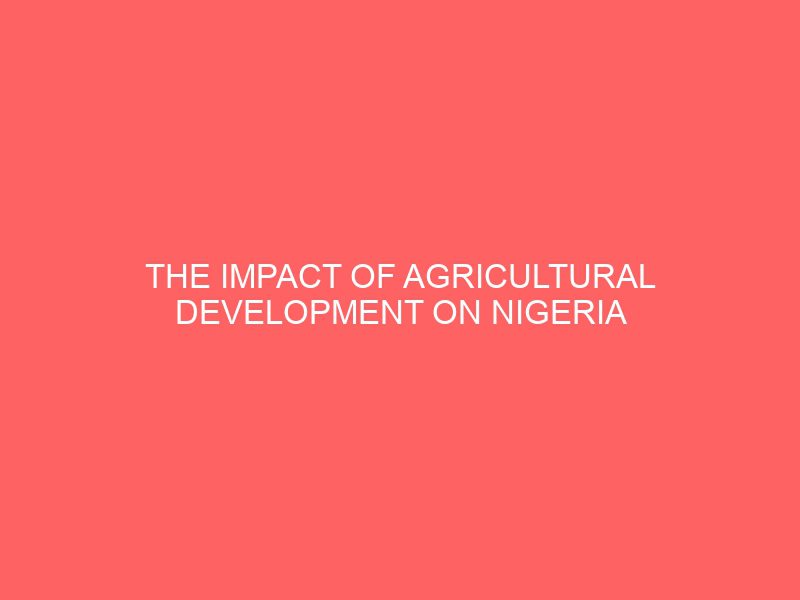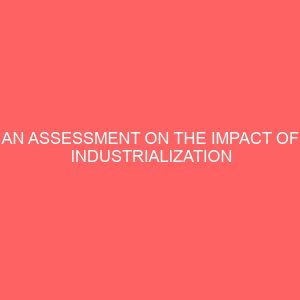Description
ABSTRACT
In recent decades, the main and potential contribution of agriculture to economic growth has been a subject of much controversy among development economists. As some contend that agricultural development is a precondition for industrialization, others strongly object it and argue for a different path. Taking advantage of ordinary least square method OLS, the research carried out by means of secondary data and using the independent variables. Agricultural Development AGD, Capital Formation CFN Inflation Rate INF, and Interest Rate INT to reexamine the question of whether agriculture could serve as an engine of Economic growth in Nigeria. The result gotten from the empirical analysis shows that the productivity in agricultural sector has appreciably impacted positively on the economic growth in Nigeria.
CHAPTER ONE INTRODUCTION
1.1 Background of the Study
Agriculture is the foundation and bedrock upon which the development of stable human community has depended on throughout the whole universe such as rural and urban communities. It is concerned with the husbandry of crops and animals for food and other purpose. The study of the history of economics provides us with ample evidence that can agricultural revolution is a fundamental precondition for economic development. The agricultural sector has the potentials to be the industrial and economic springboard from which a countrys development can take off. Indeed, more often than not, agricultural activities are usually concentrated in the less developed rural areas where there is a need for rural transformation, redistribution, poverty alleviation and socioeconomic development.








Reviews
There are no reviews yet.